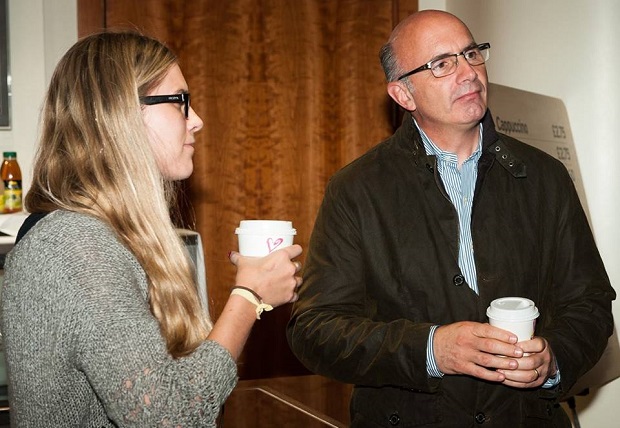Below is our recent interview with Keith Bergelt, CEO of Open Invention Network:

Q: Hi Keith, it’s great speaking with you again, could you give us a quick overview of Open Invention Network?
A: When OIN was founded nearly 15 years ago, open source software in the form of Linux was used primarily on high performance and mainframe computers, as well as infrastructure-oriented servers. Since that time, open source has become ubiquitous. It powers everything from smartphones to search engines to banking networks – as well as almost everything in between. Today, there are entire industries that are investing in the benefits of the shared technological innovation that open source provides.
Because these companies want to feel safe in their open source investments, they look to join patent non-aggression organizations like OIN. Ours is the largest patent non-aggression community in history, because companies large and small see the value provided by shared innovation and wish to standardize on core open source functionality without fear of patent aggression.
Q: What are you announcing today?
A: We are announcing that TAIYO YUDEN has joined our community. As a global leader in the development of advanced capacitors, inductors, functional modules and bulk acoustic wave (BAW) filters, it provides the key components and modules that enables the growth of the mobile devices and communications, computing, personal electronics and Internet-of-Things (IoT) industries. In addition to supplying key hardware, Taiyo Yuden has a healthy patent portfolio, and a very sophisticated approach to intellectual property management.
Q: Why is a company like Taiyo Yuden joining OIN something new for the community?
A: TAIYO YUDEN provides key electronic components and systems, driving advances in the communications, computing and automotive sectors, among many others. Interestingly, although Taiyo Yuden does not directly incorporate open source software into its products, its customers do, and the company feels it is important to support open source initiatives that are critical to the continued success of its clients.
 Recommended: Meet Suuchi – A Next-Gen Supply Chain Solution For Apparel Brands And Retailers
Recommended: Meet Suuchi – A Next-Gen Supply Chain Solution For Apparel Brands And Retailers
Q: Open Invention Network continues to grow, what do you see as its largest benefit to licensees?
A: Our community has surpassed 3,100 corporate participants. The community comprises organizations from startups to many of the largest organizations in the world who increasingly rely on open source software to support innovation and growth.
OIN’s value is derived from its royalty-free cross license that enables patent peace in core technologies and supports innovation in Linux and other particularly important open source projects. Every community member receives royalty-free access to the Linux-related patents of the 3,100 other licensees, which in aggregate own over two million worldwide patents, via the cross-license.
Additionally, OIN provides its licensees royalty free use of its own patent portfolio of more than 1,300 strategic global patents and applications. OIN has purchased its patent portfolio at a cost of in excess of $100 Million to serve as a defensive deterrent to patent aggression in core open source technologies.
Q: OIN is such a unique community, what do you think sets it apart from other intellectual property defensive organizations?
A: Recognizing the potential of open source, a group of truly forward-thinking organizations led by IBM, NEC, Philips, Red Hat, Sony and SUSE formed OIN. Subsequently, Toyota and Google have joined as Board Members and financial supporters.
In forming and supporting OIN, these companies elected to abandon the notion of control in core, building block technologies in favor of a desire to broaden the level of participation in open source projects. By explicitly embracing the notion that where we collaborate and create core technologies, we should not sue each other and by shifting invention-based differentiation higher in the stack, to the application layer, these companies sought others to join in and reap the benefits of a distilled collective intelligence in key segments. The growth of open source technologies, which was helped by OIN, ushered in a complete shift in market dynamics.
If we could increase the size of our community and make the multitude of patents that read on this core technology free to others via a cross license, the opportunity for network effects to accrue was enormous. Our whole goal was to rapidly grow our community of like-minded companies and developers to ensure companies antagonistic to Linux had limited, or no effect, in leveraging their intellectual property to hinder the growth of open source development, distribution and adoption.

